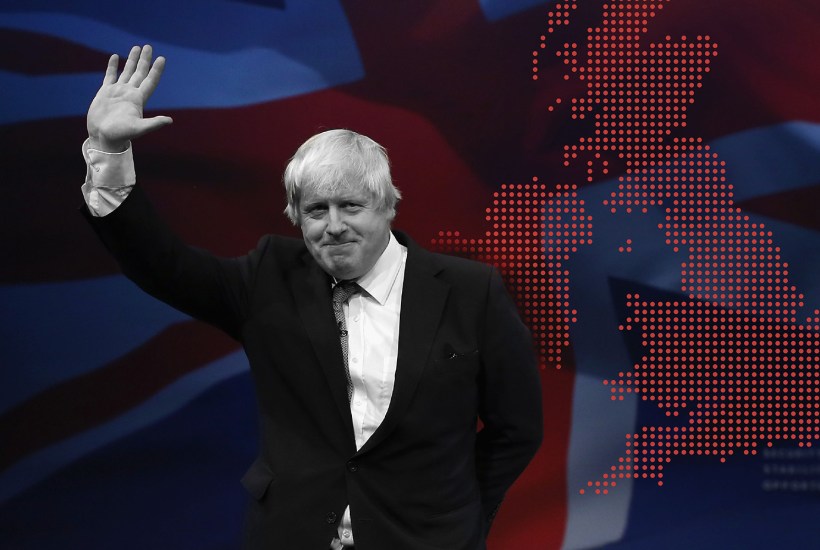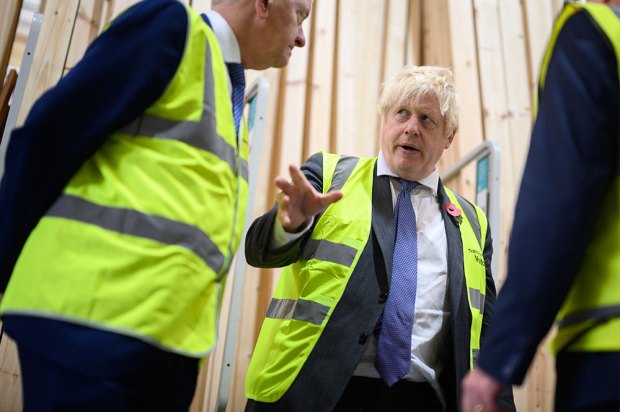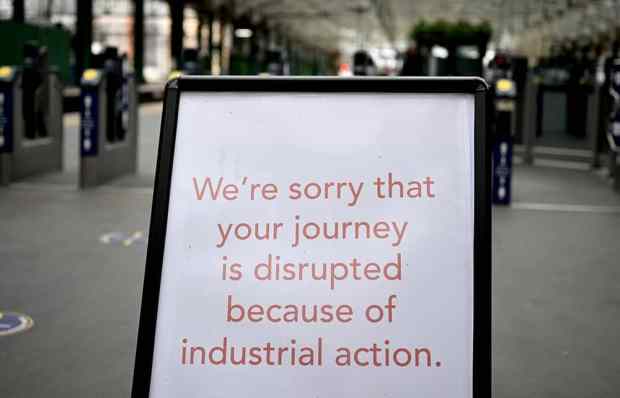If you were rich, foreign and globally mobile, would you choose to move to the UK? The trend, it turns out, is the other way: according to migration consultants Henley & Partners, we’ve seen a net outflow of 12,000 millionaires since 2017, with 1,500 departures last year.
And it’s pretty obvious why. If tax is your top concern, a tightening of non-dom rules and the near-certain prospect of a Keir Starmer government abolishing non-dom status altogether would loom large. If you’re Asian, you may think Australia looks more welcoming. If you’re European and offended by Brexit, you might prefer Ireland or fashionable Portugal.
But actually we’d be mad not to make an effort to attract well-heeled incomers, unless they’re Russian. We may no longer believe in trickle-down, but it’s surely the case that the rich who settle here are also more likely to invest in UK businesses that generate prosperity for others. And we don’t want the reputation abroad of a demoralised, fractious country, a shadow of its past glory, whose public services are collapsing – even if that’s what, this winter, we are.
Prime ministers like to signal action by appointing ‘tsars’. What we really need is an upbeat Welcome the Wealthy Tsar – and maybe it’s the perfect job for Boris Johnson.
Brand genius
Returning to my Covent Garden lair after the new year break, I’m intrigued to see shoppers queueing in Neal Street to buy Birkenstock sandals, a brand (I read in GQ) that used to be favoured by ‘Teutonic pensioners and allotment owners’ but is now hot with celebrities and influencers. How so?
The magic sauce may be that the venerable German footwear-maker was acquired in 2021 by LVMH, the luxury goods conglomerate assembled by the French brand-marketing genius Bernard Arnault – who currently counts as the richest person in the world, with a fortune estimated at $200 billion.
Arnault has long been jockeying for the notional, share-price-driven wealthiest-human title, against Jeff Bezos of Amazon and Elon Musk of Tesla and Twitter, with Indian industrialist Gautam Adani making a run on the outside. But I think the Frenchman deserves most respect, because – whereas Bezos rose by destroying retail competition and Musk is a shooting star who must surely burn out – LVMH is a four-decade accumulation of a remarkable stable of craftsmen, from the makers of Dom Pérignon and Glenmorangie to Tiffany, Louis Vuitton and Dior.
Not to say that Arnault didn’t deal roughly with rivals on the way up, but at 73 he’s an elder statesman and art collector who stays out of the limelight, having promoted his daughter Delphine as Dior chief and heir apparent. So I doff my chapeau to him, though I won’t go as far as to be seen wearing Birkenstocks.
Scrum down
What on earth has happened to Premiership Rugby, the top division of a once-Corinthian sport we might imagine to be prudently overseen by middle-aged accountants in double-breasted blazers? A Digital, Culture, Media and Sport select committee report, under the chairmanship of Damian Green MP, says the elite level of the game is ‘in disarray’ while its RFU and Premiership administrators have been ‘inert’ and ‘complacent’, their reputations particularly stained by the collapse of two clubs, Worcester Warriors and Wasps.
At Worcester, says DCMS, ‘unscrupulous owners mismanaged club finances while attempting to strip the club of its assets’. At Wasps, bondholders are fighting for settlement of a £35 million ‘secured’ debt issue, raised in 2014 to finance the club’s Coventry stadium which has now been sold off by administrators to Mike Ashley’s Frasers Group.
Some of the remaining 11 clubs have run up hefty losses and debts, with several mentioned as ‘at risk’ – and all this despite a £200 million injection into the Premiership’s holding company in 2018 by a private equity firm, CVC Capital Partners. The crisis is partly due to Covid combined with unsustainable salary bills – around £150,000 per player – but it’s also the case that commercialised sports too often attract ownership spivvery. Whatever the causes, Premiership Rugby needs to cut the foul play and scrum down defensively like never before.
Davos to Driffield
I blame the Russian cyber-attack on Royal Mail for the non-arrival of my invitation to the World Economic Forum (WEF) in Davos, the exclusive gathering of business chiefs, politicos and virtue-signallers which for one reason or another I fail to attend year after year. This time, I’m also claiming a prior engagement, talking to the ladies luncheon club of Driffield in East Yorkshire.
In Davos, this year’s buzz will be less about multinationals bigging up their net-zero commitments – the core theme of pre-Covid WEF meetings – and more about navigating ‘the turbulent Twenties, when risks collide’: namely, the intersection of inflation, recession, conflict, populist unrest, extreme weather, mass migration and more cyber mayhem. That’s a big agenda, even for top attendees such as Tony Blair, Jared Kushner and the rapper known as will.i.am, so don’t expect useful results.
In Driffield, I’ll be keeping it simpler with an anecdote about my mother and aunt as small girls, 90 years ago, confined with scarlet fever in the town’s cottage hospital and ordered to eat every morsel put in front of them: in the frugal 1930s, a no-scraps ‘Driffield plate’ at the meal’s end was a badge of honour. I’ll also be mentioning the six million tonnes of food, half still edible, thrown away annually in the UK – alongside the soaring number of food-bank users.
Redistribution of otherwise wasted food is the kind of challenge businesses big and small really can help address. Meanwhile I’m imagining a hotel ballroom full of Davos plates, laden with expensive unwanted canapés, about to be scraped into the bin.
Got something to add? Join the discussion and comment below.
Get 10 issues for just $10
Subscribe to The Spectator Australia today for the next 10 magazine issues, plus full online access, for just $10.
You might disagree with half of it, but you’ll enjoy reading all of it. Try your first month for free, then just $2 a week for the remainder of your first year.















Comments
Don't miss out
Join the conversation with other Spectator Australia readers. Subscribe to leave a comment.
SUBSCRIBEAlready a subscriber? Log in